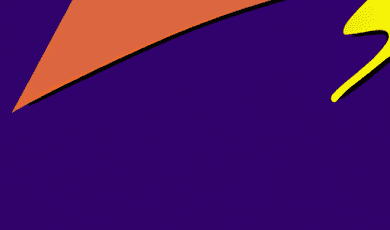
In an increasingly interconnected world, the ability to communicate across linguistic and cultural barriers is more important than ever. Nowhere is this more evident than in Africa, a continent renowned for its incredible language diversity—with over 2,000 languages spoken across its 54 countries. Historically, bridging these communication gaps has posed major challenges for individuals, organizations, and governments alike. However, with the advent of video remote interpretation, a new era of cross-border dialogue and collaboration is emerging across Africa. This innovative technology is rapidly transforming the landscape of communication, business, healthcare, education, and diplomatic relations. In this article, we explore how video remote interpretation is breaking down language barriers, compare it to traditional face to face interpretation services and over the phone interpreting, and highlight its profound impact across African borders.
The Landscape of Language Diversity in Africa
Africa stands out globally for its tremendous linguistic multiplicity. Countries like Nigeria, South Africa, and Cameroon are home to hundreds of languages and dialects, reflecting an intricate cultural tapestry. However, this linguistic richness often presents significant communication obstacles, especially when it comes to conducting business, providing healthcare, administering public services, and promoting education across regions and countries.
Traditional language solutions—like on-site interpreters—have played a crucial role in bridging these gaps. However, these face to face interpretation services come with logistical, financial, and sometimes security challenges, particularly when crossing remote or politically unstable borders. In many cases, the supply of qualified interpreters for specific African languages falls short of the immense demand, especially in rural or underserved communities. Diving deeper interpreting differs from translation.
What Is Video Remote Interpretation?
Video remote interpretation (VRI) is an advanced solution that brings together the benefits of visual and audio communication on digital platforms. Leveraging internet connectivity, VRI allows participants from different locations to connect instantly with professional interpreters via video call. This form of interpretation retains all the nonverbal cues and contextual understanding present in face to face interactions, while providing the speed and accessibility of modern technology.
VRI bridges the gap between the limitations of over the phone interpreting, which lacks visual cues, and the logistical demands of on-site interpretation. This creates a flexible, cost-effective, and highly responsive alternative suitable for a broad range of scenarios.
How Video Remote Interpretation Is Transforming Africa
1. Enhancing Healthcare Access across Borders
In sub-Saharan Africa and beyond, millions face barriers to quality healthcare due to language differences. Whether it's a patient in Dakar seeking expert consultation from a specialist in Nairobi, or an NGO providing medical aid in several countries, the need for accurate, empathetic communication is critical. Before, logistical constraints limited the deployment of on-site interpreters, often excluding the most vulnerable. VRI makes it possible for healthcare providers and patients to communicate in real time with interpreters who understand the language and local context, regardless of physical distance. This leads to better patient outcomes, more effective humanitarian aid, and greater efficiency for mobile and cross-border medical teams.
2. Facilitating Business Expansion and Trade
Africa's economies are growing rapidly, and intra-continental trade has become a crucial driver of development—a vision underscored by the African Continental Free Trade Area (AfCFTA). However, the continent's linguistic and cultural diversity can create friction in negotiations, contracts, and cross-border management. Business executives, investors, and entrepreneurs are increasingly relying on video remote interpretation to remove these obstacles. Whether it's negotiating a contract between Senegalese and Mozambican partners, conducting virtual training across various regions, or managing pan-African teams, VRI provides the flexibility, immediacy, and cultural awareness necessary for success.
3. Supporting Education and Skill Development
Education is foundational to Africa's future, but linguistic diversity can impede access to quality learning, especially for cross-border projects and regional educational initiatives. VRI facilitates remote classrooms, webinars, and collaborative research projects by connecting educators, students, and subject matter experts from different linguistic backgrounds. This ensures equitable access to knowledge and skill development, particularly in STEM subjects and vocational training, further empowering Africa's youth and workforce.
4. Promoting Diplomacy and Regional Security
Africa's regional organizations, such as the African Union and ECOWAS, regularly coordinate cross-border peacekeeping, humanitarian efforts, and development projects. Video remote interpretation allows for real-time multilingual communication among policy makers, negotiators, and security personnel—facilitating clearer understanding, reducing misunderstandings, and speeding up crisis responses. In fact, many governments are now training their officials and staff in the use of VRI, embedding its technology into diplomatic protocols.
Comparing Video Remote Interpretation to Traditional Solutions
While each mode of interpretation has its place, VRI introduces strategic advantages over conventional methods:
- Face to Face Interpretation Services: While ideal for high-stakes interactions, these are often expensive and logistically complex for remote or cross-border scenarios. VRI delivers similar nuances without requiring travel.
- Over the Phone Interpreting: Though efficient for many needs, telephone-based interpreting lacks visual context, which is vital for understanding tone, gestures, and non-verbal cues. VRI bridges this gap with both audio and video channels, improving accuracy and rapport.
- Operational Efficiency: VRI offers on-demand access to language expertise, reducing response times and maximizing resource allocation, a key consideration in fast-paced or crisis settings.
- Accessibility: With the proliferation of smartphones and improved internet connectivity in Africa, even remote communities are increasingly able to participate in VRI sessions—making communication more inclusive than ever before.
Challenges and Opportunities for the Future
Despite its transformative potential, there are hurdles to overcome in fully realizing the promise of video remote interpretation across Africa:
- Digital Infrastructure: While urban areas are well-connected, parts of Africa still face limited internet access. Continued investment in digital infrastructure will help bridge this gap and make VRI universal.
- Interpreter Training: The unique demands of VRI (such as camera presence and technological proficiency) require targeted training for interpreters, especially in less widely spoken African languages.
- Data Security: Sensitive cross-border communications demand secure and compliant digital platforms to protect privacy and confidentiality, especially in medical, legal, or diplomatic contexts.
Nevertheless, the ongoing digital revolution, growing smartphone penetration, and the rapid evolution of cloud-based interpretation platforms signal a bright future. Innovative providers and communities are sharing best practices and demonstrating use cases—in fact, you can discover insightful discussions and testimonials on YouTube channel.
Conclusion: Embracing the Future of Multilingual Africa
Video remote interpretation has fundamentally changed how Africans communicate across borders—making business, medical, educational, and diplomatic exchanges faster, more accurate, and more accessible than ever before. By leveraging innovative technologies and nurturing a new generation of skilled interpreters, Africa is not only overcoming its language barriers but setting a global example of inclusion and collaboration.
As more organizations discover the benefits of face to face interpretation services, over the phone interpreting, and, increasingly, video remote interpretation, the potential for further progress grows. To learn more about the full spectrum of interpretation solutions tailored for Africa’s needs, visit PoliLingua’s remote interpreting services page and discover how professional language support can help accelerate your cross-border communication goals.
The revolution in communication is here: multilingual Africa is ready to meet the opportunities of the 21st century—one video call at a time.







